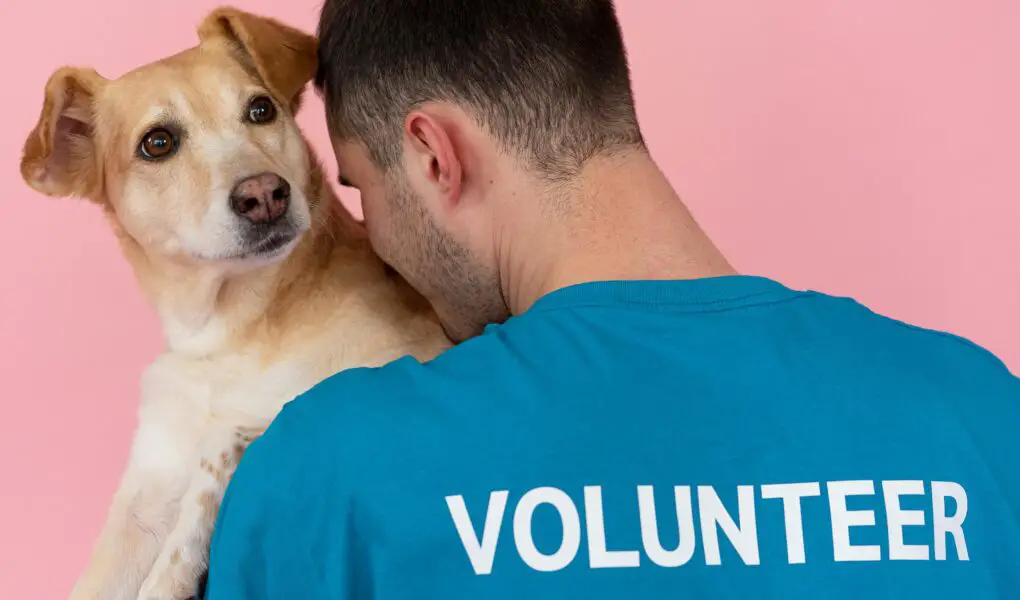Running a dog rescue is an incredibly rewarding experience, but it also comes with significant financial challenges. Whether you’re trying to rescue a group of puppies, expand your organization’s outreach, or improve the lives of shelter dogs, securing grants for dog rescues can provide the much-needed funds to continue your work.
In this guide, we’ll walk you through the process of finding and applying for grants that support dog rescues. From understanding the types of grants available to tips on crafting a winning application, this post covers everything you need to know to make your rescue operation thrive.
The Importance of Grants for Dog Rescues
Dog rescues are vital to communities, as they save the lives of abandoned, abused, and neglected dogs and offer them a second chance at a loving home. However, running a successful rescue often involves significant expenses – from veterinary care to shelter maintenance, food, training, and adoption outreach programs. Grants play a crucial role in providing non-profits with the financial resources they need to continue their mission.
In the U.S., animal welfare grants are offered by a variety of organizations, including private foundations, government agencies, and even corporations. These grants are specifically designed to assist nonprofits in improving the well-being of animals, promoting animal rescue, spaying and neutering initiatives, and supporting education about responsible pet ownership.
For instance, according to a 2023 study by the ASPCA, over 6.5 million companion animals are admitted to shelters every year in the United States, and roughly 3.2 million of those are dogs. This staggering number illustrates the huge need for organizations that can step in and care for these animals, and grants are one of the primary funding sources that allow these rescues to operate effectively.
The Impact of Grants on Dog Rescues
Grants not only provide monetary support but also validate the work being done by these organizations. Many grant applications require a detailed report on how funds were used and the impact they had, which encourages transparency and effective management within dog rescues.
- Increased Capacity: With additional funding, rescues can care for more animals at once by expanding their facilities or hiring additional staff and volunteers.
- Improved Care: Grants allow rescues to provide essential services such as veterinary care, vaccinations, neutering, behavioral training, and rehabilitation for traumatized dogs.
- Community Outreach: Funds can be allocated towards community outreach programs that educate the public on responsible pet ownership, spaying/neutering benefits, and dog adoption.
- Infrastructure Upgrades: Some grants are used to improve shelter conditions, purchase rescue vehicles, or upgrade medical and living facilities, directly impacting the quality of life for the dogs in care.
Types of Grants for Dog Rescues
There are several types of grants available to dog rescues. Some of the most common include:
- General Operating Grants: These grants cover the day-to-day expenses of running a dog rescue, such as rent, utilities, and staffing. They provide unrestricted funding, which gives nonprofits the flexibility to use the funds where they are needed most, whether that’s feeding the animals, paying for veterinary services, or improving facilities.
- Program Grants: These grants are specific to certain programs or services that your rescue might offer, such as adoption drives, spay and neuter programs, or public education initiatives about pet care. Program grants often require a clear outline of goals, strategies, and projected outcomes.
- Capital Grants: Capital grants are typically awarded for infrastructure improvements, like building a new shelter, purchasing rescue vehicles, or upgrading veterinary equipment. These long-term investments can transform the capacity and effectiveness of your rescue.
- Emergency Grants: In cases of crisis, such as natural disasters, disease outbreaks, or sudden influxes of animals, emergency grants can provide immediate relief. They ensure that your rescue can handle a surge in demand without compromising the quality of care.
- Specialized Grants: Some grants focus on specific needs, such as funding for veterinary care, breed-specific rescues, training programs, or promoting the adoption of senior dogs. These grants may require detailed plans on how funds will address these specialized areas.
Where to Find Grants for Dog Rescues
Finding the right grants can be time-consuming, but it’s an essential step toward securing the funding you need. Here are some places to look:
- Foundation Grants: Many foundations offer grants to animal welfare organizations. The Petco Foundation, for example, funds animal rescue organizations that focus on adoption, medical care, and spay/neuter programs. Similarly, the Maddie’s Fund focuses on building a no-kill nation and offers grants to support the work of dog rescues. According to their 2022 impact report, Maddie’s Fund has provided over $50 million in funding to various animal welfare programs, including dog rescues.
- Government Grants: Local, state, and federal government agencies also offer grants for animal welfare projects. The U.S. Department of Agriculture (USDA), for instance, administers the Animal Welfare Act, which funds initiatives focused on the care and well-being of animals. Your local government might also have municipal grants to support community animal shelters or rescue initiatives.
- Corporate Sponsorships: Big brands like Bissell Pet Foundation, Merial, and Best Friends Animal Society have funding programs to support dog rescues. Corporations are increasingly stepping up to fund social causes, especially those that align with their brand values. A survey by the Corporate Social Responsibility Newswire in 2021 showed that 72% of corporations increased their charitable giving in areas related to animal welfare.
- Grant Databases and Platforms: Websites like GrantWatch, Candid, and Instrumentl list animal welfare grants that are available to non-profit organizations. These platforms aggregate a wide range of opportunities, making it easier to find a match for your rescue’s needs. For example, Instrumentl provides a database of over 3,000 grant opportunities, which can be filtered by nonprofit type, geographic area, and focus area.
- Local Animal Shelters and Coalitions: Many regional animal shelters and coalitions offer grants to smaller, local rescues. Check with community groups, local councils, and animal welfare coalitions in your area to see if they have grant funding available. Local partnerships often strengthen community support and can lead to additional funding opportunities.
- Online Resources and Networks: Joining networks like Animal Welfare Approved or The Humane Society can provide access to exclusive grant information and application advice. Being part of a network not only brings knowledge sharing but also connections to potential funders and supporters.
How to Apply for Grants for Dog Rescues
Applying for grants can feel overwhelming, but breaking the process down into manageable steps will help ensure your success. Here’s a simple guide to get you started:
- Research the Grant Opportunity: Carefully read through the grant guidelines to ensure your rescue meets the criteria. Each grant will have specific eligibility requirements, application deadlines, and restrictions on how the funds can be used. Websites like Foundation Center can be extremely helpful for finding and researching these opportunities.
- Gather Required Documentation: Most grant applications will ask for specific documents, including proof of your nonprofit status (such as 501(c)(3) documentation if in the U.S.), financial records, your operating budget, and details about your programs. Be prepared to provide these before starting the application process. Gathering these documents ahead of time can significantly streamline the application.
- Create a Compelling Proposal: Write a grant proposal that outlines your dog rescue’s mission, programs, and the impact your work has on the community. Be sure to explain how the grant will help you achieve your goals, and include a detailed budget that shows how you plan to allocate the funds. Use clear, simple language that conveys passion and dedication.
- Hook Your Reader: Start with a powerful hook that captures the urgency and importance of your work. Share a heartwarming rescue story or a startling statistic about the number of dogs in need.
- Use Testimonials: Include quotes from families who have adopted dogs through your rescue, or from volunteers who witness the transformative work every day. These testimonials add a human touch to your proposal.
- Follow the Instructions: Grant applications often have strict guidelines, including word count limits, formatting requirements, and deadlines. Make sure you follow all instructions carefully to avoid disqualification. Double-check that all information is accurate and complete.
- Proofread Your Application: Before submitting, proofread your application to ensure there are no errors. A well-written and professional grant proposal gives your rescue the best chance of securing funding. Consider asking a colleague or a mentor to review your proposal for clarity and impact.
- Submit Early: Whenever possible, submit your application before the deadline. This gives you a buffer to address any unexpected issues or last-minute revisions.
- Follow Up: After submitting your application, follow up with the grantor to confirm receipt and inquire about the review timeline. Maintain a professional and polite communication channel, as this can show your commitment and reliability.
Tips for Writing a Winning Grant Proposal
Grant writing is both an art and a science. Here are some deeper insights into crafting a standout proposal:
- Tell a Story: Grant reviewers often read dozens of proposals. Make yours stand out by telling a compelling story about how your rescue has made a difference in the lives of dogs and the community. Use real-life examples and anecdotes that illustrate the impact of your programs. A narrative that tugs at the heartstrings can make your proposal memorable.
- Focus on Outcomes: Funders want to see measurable results. Outline the specific outcomes you expect from your program and how you will track and evaluate its success. For example, “We aim to reduce the number of stray dogs in our community by 20% over the next year through our trap-neuter-return program.”
- Use Data and Statistics: Include relevant statistics to support your case. For instance, you might mention that “According to the Humane Society, approximately 3.3 million dogs enter U.S. shelters each year. Our rescue has provided care for over 1,000 dogs in the past year, with a 90% adoption rate.” Data like this lends credibility and urgency to your proposal.
- Stay Specific: Avoid vague language. Grant funders want to know exactly what their money will accomplish. Be specific about how the funds will be used, such as “The $10,000 grant will fund the purchase of medical supplies and vaccines for 200 dogs over the next six months.”
- Budget Justification: Provide a clear and detailed budget. Explain how each line item will contribute to achieving your goals. Transparency about finances reassures funders that their investment is being used effectively.
- Alignment with Funder Priorities: Tailor your proposal to align with the funder’s mission and priorities. Research their past grants and priorities to understand what they value. Mentioning this alignment shows that you’ve done your homework and that your goals match theirs.
Top Grants for Dog Rescues
Here are a few notable grants for dog rescues that could help you get started:
- Petco Foundation Grants: The Petco Foundation provides grants to organizations dedicated to improving the lives of animals, including dog rescues. They focus on adoptions, veterinary care, and spay/neuter programs. For example, one of their past grants helped a rescue establish a mobile clinic, which increased access to veterinary services in underserved areas.
- Maddie’s Fund Grants: Maddie’s Fund is dedicated to creating a no-kill nation for pets. They offer several grant opportunities, including funding for adoption programs and veterinary care. According to their website, they support innovative solutions that reduce euthanasia rates and improve animal welfare nationwide.
- Bissell Pet Foundation Grants: The Bissell Pet Foundation offers grants to nonprofits that are focused on animal welfare, including rescue and adoption programs. They often look for proposals that demonstrate sustainability and community involvement. Their website features success stories that show how past grants made a difference.
- ASPCA Grants: The American Society for the Prevention of Cruelty to Animals (ASPCA) offers grants to organizations that work to rescue and rehabilitate dogs, promote adoption, and provide veterinary care. Their grant programs are well-documented and include detailed guidelines available on their official website.
- American Kennel Club (AKC) Canine Support and Relief Fund: The AKC offers grants to support the welfare of all dogs, including those in rescue operations. They provide emergency funding as well as long-term project grants. Their resources include success metrics and feedback from grantees which can help you tailor your approach.
Real-Life Success Stories and Case Studies
Let’s look at some real-life examples that showcase how securing a grant can transform a dog rescue:
- Case Study: Furry Friends Rescue
Furry Friends Rescue is a small non-profit dog rescue based in Ohio that struggled with rising veterinary costs. In 2022, they applied for a Petco Foundation Grant. By clearly outlining their need for funds to cover medical emergencies and routine vaccinations, they secured a $15,000 grant. This funding allowed them to invest in a mobile vet clinic, which not only improved the health of the dogs in their care but also increased adoptions by 25% through better outreach and education programs. This case demonstrates how targeted funding can have a multiplier effect on the success of a rescue. - Testimonial:
“Thanks to the support from grants, we were able to open a new facility for our senior dogs. The increased space and improved medical care have resulted in higher adoption rates and happier lives for our furry residents,” says Jane Doe, founder of Happy Paws Rescue.
Conclusion:
Grants for dog rescues can provide the financial support you need to continue your important work. By understanding the different types of grants available and the application process, you can improve your chances of securing the funding necessary to expand your programs and reach more dogs in need.
Remember, the key to success in applying for grants is persistence, preparation, and continuous learning. By carefully researching opportunities, tailoring your proposals, and following up on your applications, you can make a significant impact on your rescue’s sustainability and growth.
Whether you’re crafting your first grant proposal or refining your approach with years of experience, there’s always room to learn and improve. To enhance your grant writing success rates, consider subscribing to the Grant Writing Academy Newsletter.
You’ll get access to tips, strategies, templates, and tools designed to improve your grant application process and increase your chances of securing funding. Whether you’re new to grant writing or an experienced pro, our resources are here to help you achieve success!
Start your journey today—subscribe to the Grant Writing Academy Newsletter now!
Additional Resources and Support
a) Expand Your Knowledge
The grant writing field is always evolving. Keep learning and improving your skills to stay competitive.
Recommended Resources:
- Request for Proposal Success: How to Write Proposals That Win: Learn the techniques and strategies to create standout proposals.
- Tech Startup Funding Secrets: Navigating Grants for Maximum Growth: Perfect for those in the tech sector looking to leverage grants for scaling.
- Grant Proposal Guide for Environmental Projects: Tailored for environmental initiatives seeking to secure impactful funding.
- The Ultimate Guide to Federal Grant Applications: Techniques for Success: Master the complexities of federal grants with actionable insights.
Explore More Books Here
b) Invest in Expert Guidance
Want to fast-track your growth and achieve even more success?
Join one of our mentorship programs for tailored advice and support:
Mentorship Programs:
- 3-Month Mentorship: The Foundation Builder: A short-term plan to refine your grant writing skills and win your first (or next) grant.
- 6-Month Mentorship: The Proposal Pro: Dive deeper into strategies, proposal reviews, and funding plans.
- 1-Year Mentorship: The Funding Champion: Build long-term success with comprehensive guidance, unlimited reviews, and exclusive resources.
C) Book a One-on-One Consultation
Sometimes you just need personalized advice to tackle challenges or fine-tune your strategy. Let’s work together to solve your unique grant writing challenges.
Book a Consultation Call Here
Sources & Further Reading:
- ASPCA Research
- Petco Foundation Grants
- Maddie’s Fund Impact Reports
- Instrumentl – Find Grants
- GrantWatch





You must participate in a contest for top-of-the-line blogs on the web. I’ll recommend this site!